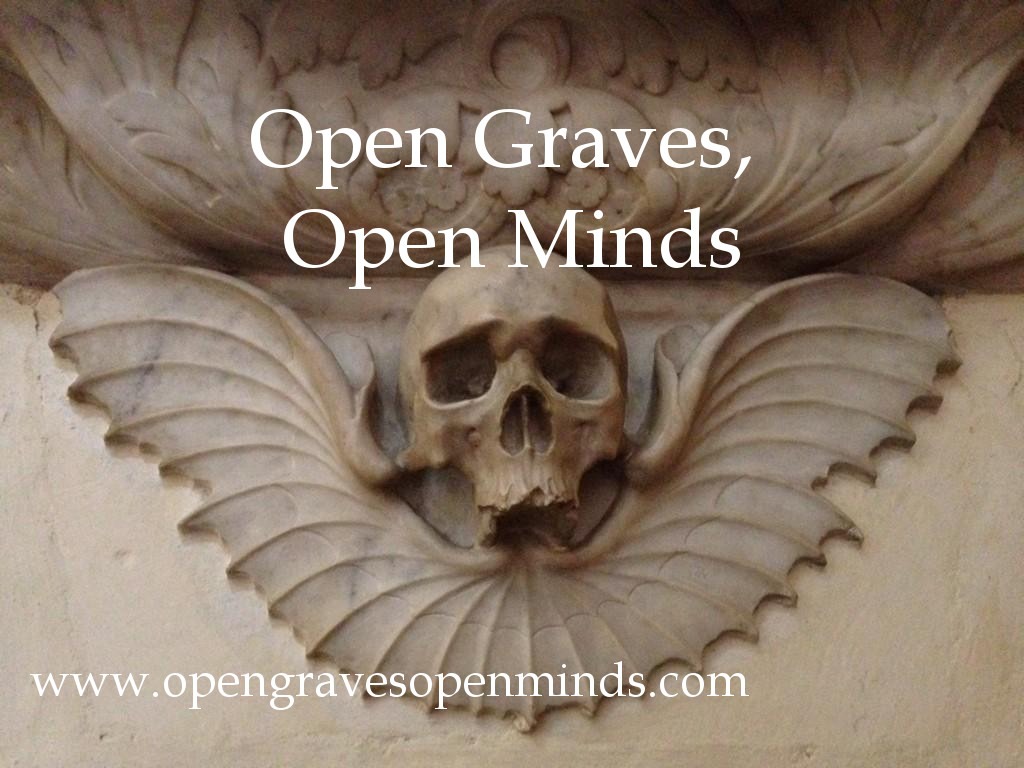This site is an immensely useful research tool for Gothic studies, the fantastic, and the magical in fiction and folklore. To learn how to make the most of it, please look at the ‘How to use this site’ page here.
The Open Graves, Open Minds: Vampires and the Undead in Modern Culture Research Project is led by Prof. Sam George at the University of Hertfordshire, in collaboration with Dr Bill Hughes (ORCID ID here). The Open Graves, Open Minds Project began by unearthing depictions of the vampire and the undead in literature, art, and other media, then embraced werewolves (and representations of wolves and wild children), fairies, and other supernatural beings and their worlds. The Project extends to all narratives of the fantastic, the folkloric, and the magical, emphasising that sense of Gothic as enchantment rather than simply horror. Through this, OGOM is articulating an ethical Gothic, cultivating moral agency and creating empathy for the marginalised, monstrous or othered, including the disenchanted natural world. The Project was initiated by a prominent and exciting conference in April 2010.
The Project has generated a series of events, publications, and inspiring discussions. Select papers from the 2010 conference have appeared in a special edition of Gothic Studies (May 2013); other papers and specially commissioned chapters appear in a monograph, Open Graves, Open Minds: Representations of Vampires and the Undead from the Enlightenment to the Present (Manchester: MUP, 2013). Further publications will follow and more conferences are planned; there has already been ‘The Company of Wolves’: Sociality, Animality, and Subjectivity in Literary and Cultural Narratives—Werewolves, Shapeshifters, and Feral Humans’—a very successful conference held at UH in September 2015.
People
You can read about the OGOM team here by clicking this link.
The founding OGOM researchers are:
- Stacey Abbott (vampires in film and TV)
- Sam George (the literary vampire)
- Bill Hughes (the genre of paranormal romance)
- Marcus Sedgwick (1968–2022; writing vampire fiction)
- Catherine Spooner (contemporary Gothic culture)
- Ivan Phillips (undead interfaces)
And currently involved are PhD researchers whose research has been funded by the generous bursary from the University of Hertfordshire:
Four members have successfully concluded their PhD at UH under Sam’s supervision:
- Dr Kaja Franck (the werewolf in fiction from the nineteenth century to today)
- Dr Jillian Wingfield (the twenty-first-century American vampire)
- Dr Matt Beresford (Polidori and the Byronic vampire: (‘The Lord Byron / John Polidori Relationship and the Development of the Early Nineteenth-Century Literary Vampire’)
- Daisy Butcher (‘Monsters of (In)fertility: The Plant Woman and the Female Mummy in Victorian Gothic Literature’)
We include with gratitude, too, the contributors to our edited collections and special journal issues, and all the presenters and attendees of our conferences.
The Open Graves book, though of wider interest, serves as a reader for the MA module, ‘Reading the Vampire: Science, Sexuality and Alterity in Modern Culture’ which Sam has pioneered at the University of Hertfordshire and which is an integral part of the Project. You can view the course schedule for the introductory module here. For enquiries, please contact Prof. Sam George directly on s.george [@] herts.ac.uk.
Graves open up, and ghastly but fascinating creatures of the imagination emerge, spurring creative and analytic responses of many kinds. As with Bram Stoker’s Van Helsing in Dracula, encounters with the Undead have facilitated, in Dr Seward’s words, ‘an absolutely open mind’. The phrase, ‘Open Graves, Open Minds’, which graces this project, appears in Daniel Waters‘s young adult novel, Generation Dead. Dan very kindly allowed us to use this slogan, which we found aptly witty and inspiring. Waters’s powerful, often very funny, and moving novel (and its sequels) dramatises with great intelligence many of the striking themes in fictions of the undead which have been explored throughout this project. We would very much like to recommend his work to you.
This blog will continue the research initiated by the Open Graves, Open Minds Project, but it will also be a forum to discuss our current areas of interest. These include:
- Werewolves, shapeshifters, and the tensions between the animal and human in literature. This is with regard to the 2015 conference, ‘The Company of Wolves’: Sociality, Animality, and Subjectivity in Literary and Cultural Narratives—Werewolves, Shapeshifters, and Feral Humans);
- Young Adult Gothic Fiction. This supports Sam’s new research interests and teaching including her new level six module ‘Generation Dead: Young Adult Fiction and the Gothic’ (University of Hertfordshire)
- Current research by OGOM participants and postgraduates
We welcome responses and contributions so that the blog can be a site of fruitful debate and a valuable resource for scholars, students, writers, and aficionados.
Web design by Bill Hughes. © Sam George and Bill Hughes 2015-2020

